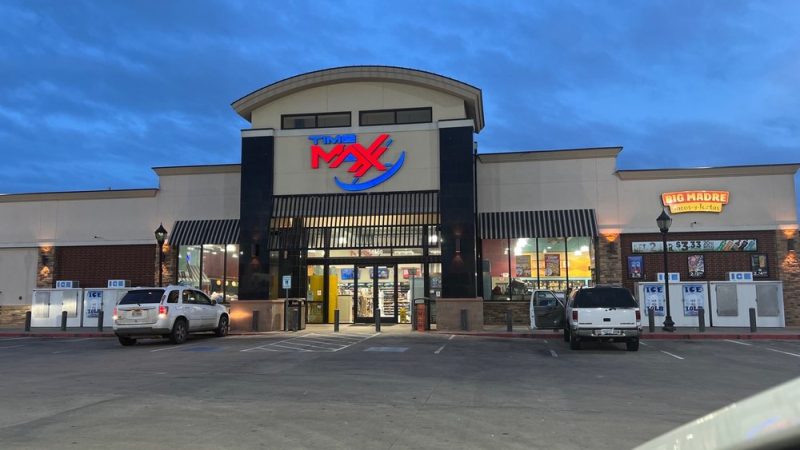Microservices architecture breaks down applications into smaller, loosely coupled services that can be developed, deployed, and scaled independently. When combined with containerization, microservices offer several advantages. Containers provide a lightweight, consistent environment for each microservice, ensuring that dependencies are isolated and applications are portable across different environments. This modularity allows teams to update and scale individual services without affecting the entire application, improving fault isolation and resilience. Container orchestration platforms like Kubernetes simplify the management of microservices by automating deployment, scaling, and load balancing.
Agility with DevOps Containerization
Overview
Optimize Resources with Softnix DevOps Containerization Services
Our DevOps Containerization services stand out because they make software deployment smoother and more secure. Using Docker and Kubernetes technologies, we simplify how software is packaged and deployed, making it easier for developers to manage and update applications. Here’s why they’re better than others:
- Advanced Security Features: We ensure your applications stay safe with robust container security practices, protecting them from cyber threats.
- Efficient Scaling: Our services allow your software to grow seamlessly as needed, adapting quickly to changes in demand.
- Automated Deployment: We streamline the process of getting your applications up and running, saving time and effort.
With our microservices approach, applications are divided into smaller, more manageable parts, improving flexibility and scalability. Infrastructure automation tools like Terraform and Ansible ensure that every deployment is consistent and reliable, reducing errors and downtime. Whether on AWS, Azure, or GCP, our cloud-native solutions optimize performance and cost-effectiveness, ensuring your applications run efficiently in any environment.
Services
Why Choose Softnix DevOps Containerization
Our DevOps Containerization services offer secure, scalable software deployment with advanced efficiency and robust security measures. Ensure reliable application deployment, enhanced security, and streamlined development processes for seamless, optimized operations.
0+
0
0%
0countries
0/7
Get your DevOps Containerization from Industry Experts. Hire us
HERE’S HOW WE DO IT
Integrating Security Safeguarding Applications with Robust Container Management Practices
Let’s Discuss Your Idea & Turn Your Idea into Reality!
Core Values
Our Guiding Core Values
Expertise
Let’s Work Together!
Softnix empowers businesses with DevOps containerization, using Docker and Kubernetes to streamline deployment and enhance scalability. Our services ensure secure, efficient software delivery, optimizing operations through advanced container orchestration and robust security measures.
0+
0%

Reviews
FAQs about to DevOps Containerization
What is DevOps containerization?
DevOps containerization involves packaging applications and their dependencies into lightweight, portable containers. These containers ensure consistency in software delivery across different environments, from development to production. By encapsulating everything an application needs to run, including libraries and configurations, containerization simplifies deployment and improves scalability. Docker is a popular tool for containerization, offering a standardized format that enables developers to build, ship, and run applications seamlessly across various platforms. This approach accelerates the software development lifecycle by reducing compatibility issues and dependencies, fostering collaboration between development and operations teams.
Why should I choose Docker containers?
Docker containers are favored for their efficiency and portability in application deployment. They enable developers to package applications with all their dependencies into a single unit, ensuring consistency across different environments. This portability means that applications developed in Docker can run on any infrastructure that supports Docker, whether it’s a developer’s laptop, a test environment, or a production server. Docker’s ecosystem provides tools for automating the deployment of containers, orchestrating their management, and scaling applications as needed. This flexibility and efficiency make Docker containers ideal for modern DevOps practices, enabling teams to iterate quickly, deploy reliably, and scale effortlessly.
How does Kubernetes enhance containerization?
Kubernetes is an open-source container orchestration platform that automates the deployment, scaling, and management of containerized applications. It provides a robust framework for running distributed systems resiliently and efficiently in hybrid cloud environments. Kubernetes simplifies container orchestration by automating tasks such as scheduling, load balancing, and resource allocation. It monitors the health of containers and ensures that the desired state of applications is maintained at all times. Kubernetes also supports advanced networking and storage options, making it suitable for complex applications that require high availability and scalability.
What are the benefits of microservices with containers?
How does DevOps containerization improve security?
Containerization enhances application security by isolating applications and their dependencies into discrete units known as containers. Each container runs with its file system, processes, and network interfaces, reducing the attack surface compared to traditional virtual machines or bare-metal servers. DevOps containerization practices include using secure base images, implementing image scanning for vulnerabilities, and applying network segmentation and access controls. Container orchestration platforms like Kubernetes provide built-in security features such as role-based access control (RBAC) and network policies, ensuring that only authorized users and services can interact with containers.
What role does CI/CD play in containerization?
CI/CD (Continuous Integration and Continuous Deployment) pipelines automate the process of building, testing, and deploying containerized applications. In DevOps containerization workflows, CI/CD pipelines ensure that code changes are automatically tested and validated in a controlled environment before being deployed to production. CI/CD pipelines integrate with container orchestration platforms like Kubernetes or Docker Swarm to automate the deployment of containers, ensuring consistency and reliability across development, testing, and production environments. By adopting CI/CD practices, DevOps teams can accelerate software delivery, reduce manual errors, and improve collaboration between development, operations, and quality assurance teams.
Can containers be deployed on cloud platforms?
Yes, containers are compatible with major cloud providers such as AWS (Amazon Web Services), Azure (Microsoft Azure), and GCP (Google Cloud Platform). Cloud-native containerization allows organizations to leverage the scalability, reliability, and cost-efficiency of cloud infrastructure while benefiting from the portability and efficiency of containers. Cloud providers offer managed container services such as Amazon ECS (Elastic Container Service), Azure Kubernetes Service (AKS), and Google Kubernetes Engine (GKE), which simplify the deployment and management of containerized applications. These services provide automated scaling, load balancing, and integration with other cloud services, enabling DevOps teams to focus on application development rather than managing underlying infrastructure.
How does infrastructure as code (IaC) relate to containers?
Infrastructure as Code (IaC) is a practice that automates the provisioning and management of infrastructure using declarative scripts or configuration files. With containers, IaC tools such as Terraform, Ansible, or Kubernetes manifests are used to define and deploy containerized applications and their underlying infrastructure. IaC simplifies the process of creating and managing container environments by enabling teams to define infrastructure components, such as networks, storage, and compute resources, as code. This approach ensures consistency and repeatability in deploying containerized applications across different environments, from development to production.
What are serverless containers, and how do they work?
Serverless containers combine the benefits of serverless computing with containerization, allowing developers to run containerized applications without managing the underlying infrastructure. Platforms like AWS Lambda, Azure Functions, or Google Cloud Run support serverless container deployments, automatically scaling resources based on demand and charging only for the resources consumed. Serverless containers abstract away the complexity of infrastructure management, enabling developers to focus solely on writing application code. This approach reduces operational overhead, improves scalability, and enhances cost-efficiency by eliminating the need to provision and manage servers or container orchestration platforms manually.
How can I get started with DevOps containerization?
Getting started with DevOps containerization begins with understanding your application architecture and identifying components that can benefit from containerization. Choose container orchestration platforms such as Docker or Kubernetes based on your scalability and deployment requirements. Adopt CI/CD practices to automate the build, test, and deployment processes of containerized applications. Define infrastructure requirements using Infrastructure as Code (IaC) tools to ensure consistency and repeatability in deploying containers across different environments. Leverage cloud platforms like AWS, Azure, or GCP for scalable and cost-effective container deployments.
Couldn’t find your answer? Ask a question







